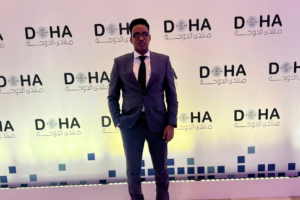
I have been occasionally traveling to Baidoa since 2014. It is a nice, cool town, and its people are welcoming. It is always great to go back to the city and keep up with the great development going on. The last time I visited Baidoa was January 2021 when I was doing field research on fiscal federalism for Somali Public Agenda.
In the past, the travelers screening at the airport was unpleasant. In 2014 and 2015, I had to go through screening by an Ethiopian soldier, then carry my bag to put it in a designated area for dog screening. Now, an Ethiopian soldier accompanied by someone from the travel agency holds the letter with the travelers’ names. He would ask your name and would tick and allow you to proceed if your name is listed in the roll. The process now is much more convenient than it was a few years ago.
Shaati Gaduud Airport and Shaatigaduud International Airport posters (and other artistic works) are plastered on the walls that lead to the airport terminal. I visited the town when there was no permanent building at all. Passengers waiting for the takeoff used to gather in a small corrugated metal lodging place near to the airstrip. With a terminal, now travelers can get a coffee/tea, water, snacks, and a chair to sit while waiting for the airplane. Immigration officers are also working. Upon my return, for the first time, an officer asked me for my ID card, checked it with the name on my ticket, and allowed me in.
Another addition to the airport is a bus, which picks passengers to and from the airport. It is similar to the one in Mogadishu, which collects $8 from travelers at its terminal near km4 to the airport (including additional screening), and $3 from the airport to Km4. The Baidoa bus service collects $3 from each passenger going to and coming from the airport. They have a ticket printed $3 on it that you will be given when you pay the fare to a man sitting in a chair near the bus. The conductor standing at the bus entry gate would collect the ticket from you and would allow you to enter and sit. It is a nice bus, but owners (who most likely are government officials) created a business opportunity for themselves and are making money. A few months back, we were picked up from the airport without paying money. I have also seen a similar arrangement in Beledweyne.
Baidoa is expanding very fast. During my five days of stay in the city, I have seen many buildings under construction. Some of the ongoing construction included offices of South West State ministries. In Wadajir village, the IDPs are pushed to the outskirts of the town. I have seen places where IDPs had vacated or were forcibly evicted, and new constructions have started there. It reminded me of the IDP situation in Mogadishu and how some landlords and land brokers use IDPs to appreciate the land value and urbanize the neighborhood and then evict them and push them to the periphery. The increasing constructions in Baidoa are indicative of how resources for the South West State were concentrated in Baidoa.
Businesspersons invested in two green places in Baidoa namely Baidoa Park and Baidoa City Park. A friend of mine, Mohamed Said, and I spent an afternoon at Baidoa Park. It is a green, quiet place. We spent a good time there discussing research, forums, and public awareness. Mohamed Said is passionate about volunteerism, community awareness, and creating space for dialogue. It was delightful to know more about Wa’yi Platform and its weekly meet-up called ‘Friday Forum’.
A day before I left the city, I accompanied two highly respected youth from the city – Mohamud Shawul and Jamila Hagi – and visited Baidoa City Park. Located in the far corner of the city, it is bigger than Baidoa Park, and there were constructions in some parts of the space. It has a pleasant view. You could see two twin hills – one of them Buurhakaba – while sitting there. Young men with a cameras were photographing other youth. A section was dedicated to children and had many entertainment facilities for children. It was amazing to see such a splendid place in Baidoa. Mohamud Shawul, Jamila Hagi, and I discussed a lot about blogging, research, and social media.
Apart from the parks and green spaces, I enjoyed much of the city’s food. Bakiin restaurant, near Bakiin Hotel, offers unique and delicious local food, fresh camel milk, and addictive Somali tea. I would often walk to a small restaurant near to the hotel I was staying in to have breakfast and lunch. In the morning, when one orders breakfast, a young man would bring hot black tea. It is free, and everyone who orders a breakfast would be offered tea. At night, I would go to another green restaurant. It has a unique drink called Carees. It is a mix of apple, papaya, date, raisins (sabiib), and others; it is delicious and can be a meal replacement. I have never seen or drank a similar drink in Somalia. A former classmate at Mogadishu University – Abdullahi Mohamed Ali – would often accompany me in the evening.
How the bajaaj operates in Baidoa is another interesting thing I observed. Each day, only one color bajaaj is allowed to operate on Baidoa streets. It is the white color bajaaj for one day, and the red color bajaaj for the next day, etc. I don’t know how they came up with this approach, but it seems a creative arrangement for public transport. Those who try breaking the rule and work an extra day can only do that in the neighborhoods and cannot come onto the main roads.
Although I had traveled to Baidoa several times, I had not managed to learn the Maay dialect. I had a problem communicating with some people who cannot speak the Maxaa dialect. Others who can speak the Maxaa dialect (including my former classmate in Mogadishu) would sometimes speak with me in Maay.
Despite my language/dialect barrier, people in Baidoa are welcoming and friendly. In 2017, I cracked a joke with a friend in an afternoon in Baidoa over a tea in front of Afar Irdoodka that I would rather opt to be a district commissioner in Baidoa than in Buulaburte, my home town, because of the friendliness and law-abiding citizens in Baidoa. I told him that in Buulaburte I would be addressing problems created for me all day, which distracts one to do any meaningful work. Although the quality of being friendly and law-abiding may be seen as a weakness by some, it is important for Somalia’s state-building and communities in Baidoa could teach that lesson to the rest of Somalia.
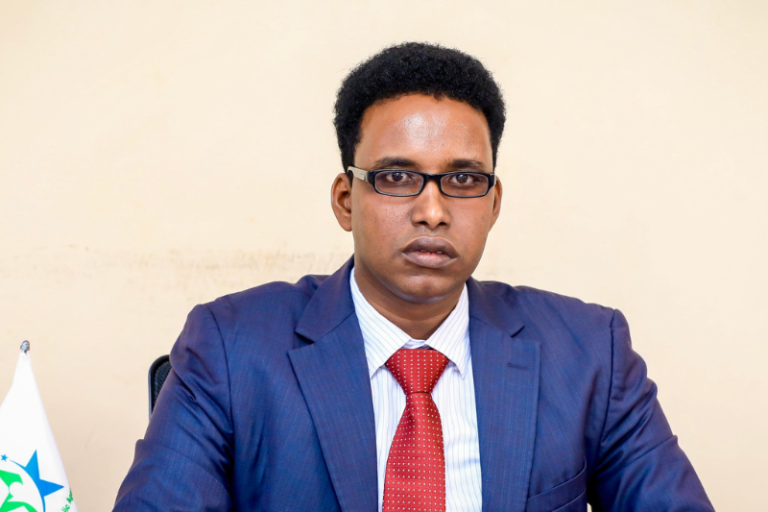
Is a researcher, teacher, podcaster and blogger. His work over the last decade has focused on teaching and researching governance, justice and social services in Somalia.

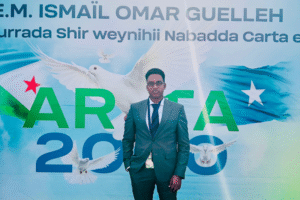

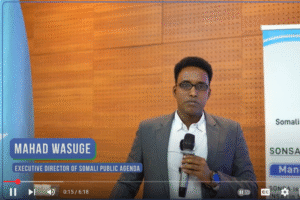

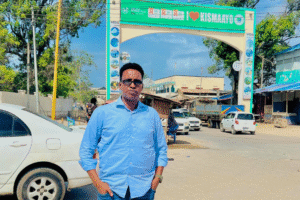
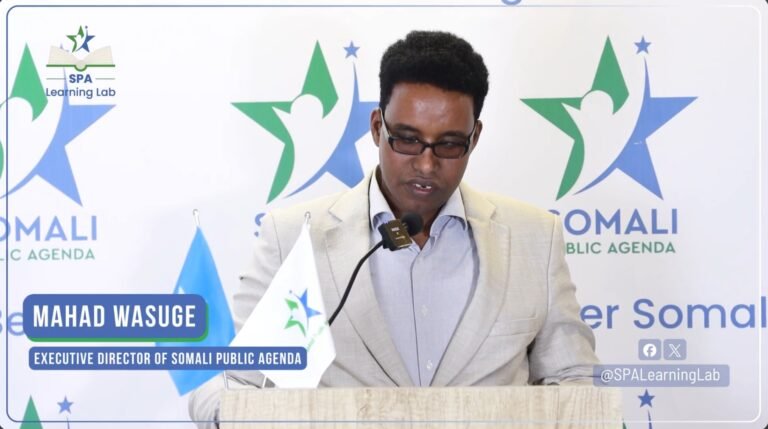
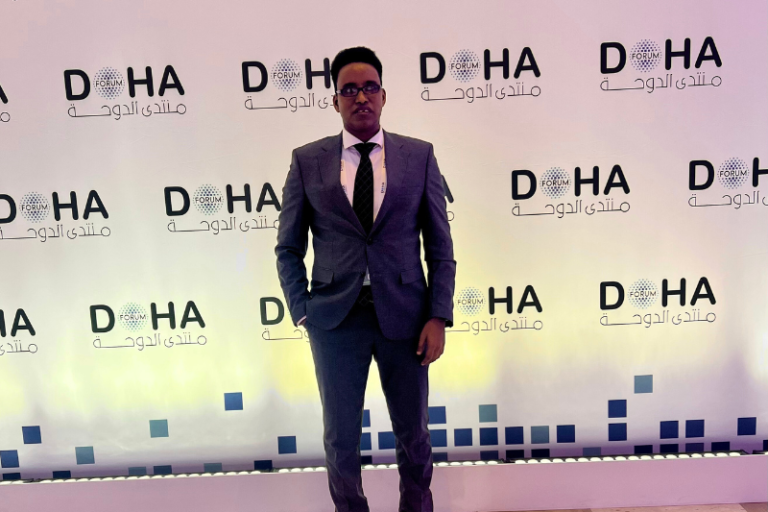

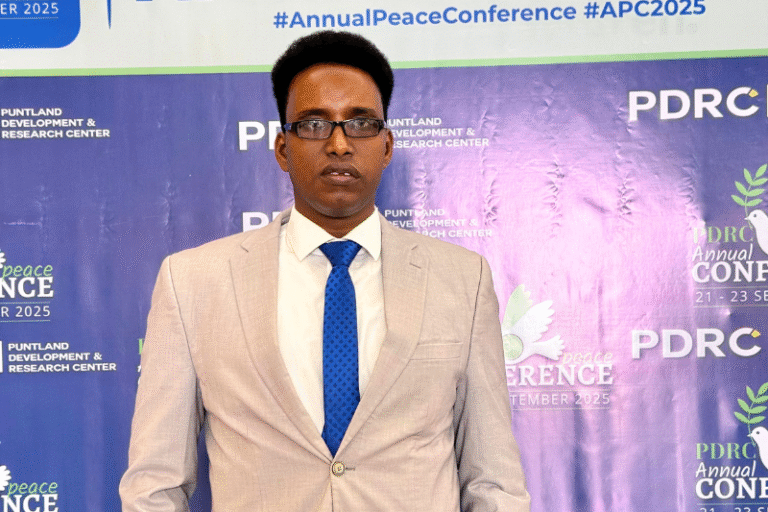
2 Responses
Such an interesting reflection.
Good to hear that the city is positively changing!
interesting read. let’s hope the transformation continues across the country and we change the gun with the pen.